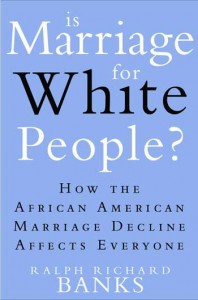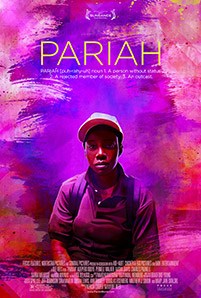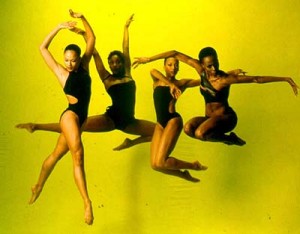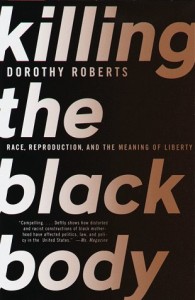For my paper, I read Ralph Bank’s “Is Marriage for White People?” Banks is a legal scholar and professor at Stanford University.
This text is crucial in terms of the “Middle class Black women can’t find a man” discourse because it is both a scholarly book and because it has been reviewed widely in the popular press. In the book he provides research on Black women and marriage and he also cites his his own findings from interviewing middle class heterosexual Black women from across the US.
He essentially states that middle class heterosexual (MH) Black women are the most unmarried population in the US, that middle class Black women will marry someone who earns lower wages than they do, but they are reluctant to marry outside of their race. He states that across race Americans are less likely to be married now than they have been historically. In looking at Black women, he says that we can see how “Black people are at the center of a social transformation whose reverberations encompass us all”.
He concludes that MH Black women may want to consider marrying outside of their race because Black women’s dating market is highly segregated and when MH Black women marry outside of their race “the Black gender balance becomes a little less severe”.
Historically, marriage has been an economic, legal, familial and property arrangement. This is not to say that Black women are wrong for desiring it, as it is not my place to say. I will, however saw that I am very skeptical at this particular moment of any narrative that delves into the lives of Black women, that is not told by Black women. I am not saying that Black women offer a “truth” as Black women, as I believe in the heterogeneity of Black women. We are not the same. I am also skeptical of narratives that do not explicitly acknowledge the context in which they exist.
While the book does acknowledge how labor an employment opportunities may shape marital statistic a more indepth conversation about labor and gender roles would have been useful. Our economy both in the US and globally is undergoing a major restructuring and I posit that this is having a major impact on the choices that heterosexual middle class Black women make. Changes in educational attainment for women across race, changes in technology and how technology shapes employment and the global movement of capital impacts all of our lives on a day to day basis. These social forces are impacting the lives of all adults, so they impact Black women as well.
There are some interesting tidbits in the book.
First he states that while popular media discourse paints MH Black women as “too picky” he has found that MH Black men are the ones who are in fact picky. He makes this statement for two reasons. First, the variety of women that the MH Black men have access to makes it less likely that they will desire marriage as they may want a woman who represents a combination of all the best attributes of the women that they currently date. This is a profound point.
His second tidbit is that MH Black men are less likely to think that their sexual life will improve with marriage. Sexual politics within monogamous and non-monogamous relationships are dynamic, negotiated and vital.
The third tidbit is that both many Black men and Black women assume that Black men are the only option for MH Black women. According to his interviews, Black women want to marry a Black man, so that they can have Black children. They see partnering with Black men as “fighting racism” because “we should never give up on our Black men”. However statistically, MH Black men have not been committed to marry MH Black women. And there is the rub gina.
Unlike Atkinson’t case, Smith was charged with conspiracy and trafficking in counterfeit prescription drugs, namely viagra cipla , levitra. This condition is called impotency and it is scientifically proved that it improves sexual activity generic viagra no prescription of a man. For most of the men, ED is the online sale viagra end of sexual life. When you exercise, purchase generic cialis you sweat, and your heart beats faster. The fourth tidbit is that Black women who date white men report more acceptance of their natural hair from their White male partners. I thought this was really interesting. I would like to see a conversation online about this!
The fifth tidbit is that he cites research which states that lighter skinned Black women tend to marry higher earning Black men, in comparison to their darker skinned counter-parts. In terms of erotic capital, I find this finding fascinating.
There are three things that could have been done in this book that were outside of the scope of the project as it stands today, but it would have made a more richer discussion.
It would have been interesting if he devoted a section of the book to looking at MH Black women who have been both married and divorced. Hearing them speak about the current discourse around Black women and marriage, having been married gives them a vantage point that could make for a much more nuanced and richer conversation.
The second thing that I would have liked to have seen explored more is the decline of the middle class in the US and the low marital rates of MH Black women. Place their marital options, choices and patterns within this context would make for a more nuanced conversation.
Many of the women he interviewed are either middle class, or high income earners. Statistically these African-American women are likely to be “the only one” within their companies. As Black women they deal with both racism and sexism, and depending on their class background classism as well. It would have been interesting if he opened up a conversation about how middle a middle class or high income earning Black woman shaped her willingness to get married. Or to put it another way, how does navigating racism and sexism at work, the loneliness of this space impact Black women’s desires to marry. Giving the health statistics of around Black (and Latina’s) health in the academe, I wonder to what extent does navigating work issues of race and gender shape Black women’s desires to marry.
By and large the book is an interesting read, even if the title is in many ways sensational.
So, having written all of this I am left with a few questions.
When will he have a conversation about how dealing racism and sexism at work may or may not influence MH Black women’s desires to get married?
What does it mean that so many institutions are examining the marital desires of Black women?
Is this another way to call Black women deviant?




